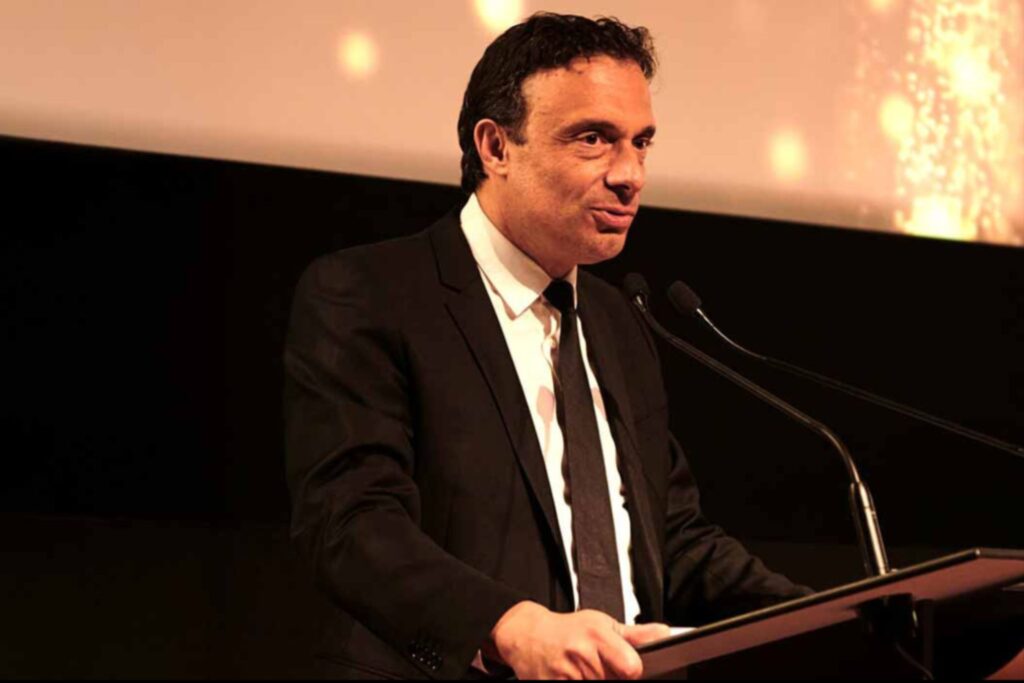Reactive Executive can provide you with an interim manager in less than 48 hours.
Find your managerReactive Executive, replacing your senior executive in 48 hours

Reactive Executive is a pure player in transition management , present throughout France. Emmanuel Gasparini, its president, shares his vision of the job market and his Reactive Executive solution.
Affiches Parisiennes: Can you tell us about your company, which specializes in transition management?
Emmanuel Gasparini : Reactive Executive has existed since 2012. We are a pure player in interim management. We specialize in management roles, including Executive Committees, Executive Committees, and Steering Committees. Reactive Executive carries out around a hundred assignments per year, generating a turnover of just over €10 million in 2024. We work in all types of management roles: CEO, HR Director, CFO, and all other finance roles: accounting, debt collection, credit management, etc., as well as all roles related to industry: site, factory, and production directors.
In recent years, other functions have become open to interim management: Marketing Management and Sales Management.
The winning triptych of the three most represented functions is the General Management, the CFO and the HRD.
We carry out 60% of our missions in the regions and 40% in Île-de-France.
What are the particularities you encounter when working in the Île-de-France region or in France in general?
Executives are desperate to replace their CEO, CFO, or HR director. When they contact us, executives are clearly under pressure, seeking a managerial and operational solution that addresses the unique characteristics of their corporate culture.
Reactive Executive is committed to being able to offer three immediately available candidates within 48 hours of receiving a mission brief from a client.
The keystone of our success is our DNA, it is responsiveness .
For example, for an industrial subcontractor in the aeronautics and armaments industries whose production manager suddenly fell ill, resulting in an estimated absence of several months, we found three candidates in two days who were immediately available and who mastered the industrial bar turning processes to take over. Without this responsiveness and this ability to mobilize candidates within 48 hours, the site’s production would have been significantly impacted.

The sectors are all very different, some with quite heavy regulations. Do you work with all of them, or do you have any preferred sectors?
Today, interim management has grown in all sectors of activity. There are even some specific sectors where we are the only ones to intervene.
Our preferred sector is industry, which represents 55% of our missions.
In 2024, for example, we carried out 46 assignments in SMEs and mid-cap companies in the mechanical and chemical industries, mostly for subcontractors in the aeronautics, automotive, and electronics industries. We also worked with major industrial groups such as GE VERNOVA, the General Electric subsidiary that produces offshore wind turbines, Framatome, and Alstom’s transport subsidiary.
We are also present in service companies, such as banks, media companies, transport and travel companies.
For example, we have just completed a very successful mission at France Télévisions.
What are the most common jobs you can work on?
What are the most common jobs you can work on?
It all depends on the economic situation, but the three most represented functions are general management, financial management and human resources management.
In the SME-ETI sector, where Reactive Executive is a leader, difficulties linked to the increase in the price of raw materials, energy and the repayment of PGE have led to an explosion in requests for financial management.
Indeed, implementing financial KPIs is now essential to the economic survival of an SME. At ENCO, a construction and public works equipment rental company, our interim manager has structured an operational management control function to help executives better manage relevant indicators to support the company’s growth.
After these three professions come all the functions linked to industrial production, such as site management, production management or supply chain management.
And then there are also new demands appearing in the transition market.
I am thinking in particular of CSR management for companies that are starting from a blank page and need to implement their CSR policy.
Are there enough manager profiles in these sectors or do you sometimes have difficulty finding them?
The attractiveness of the Reactive Executive brand, as well as word of mouth generated by the satisfaction of interim managers who have worked with the firm, means that on average, 15 new interim managers register in our database every day, or more than 3,500 per year. To date, we have an interim manager database of 21,000 interim managers.
On the other hand, for all the new roles I’ve talked about in CSR, profiles are much rarer, and this is the role we’re most looking for. The challenge for us is mainly to extract from the 21,000 interim managers the three managers who are immediately available, with all the experience and expertise required for the mission and capable of having the mobility to intervene at the client’s location. To do this, we’ve implemented powerful AI tools that query our database.
As you work throughout France, are there any regions in France where you have a little more difficulty finding available profiles?
We have no difficulties in the large employment areas such as the pharmacy and chemical valley in the Lyon region, for example, or the Ile-de-France region.
Where things are a little more complicated is on the entire western coast of France, which is practically at full employment.
It is true that for the past six months, the job market has been somewhat sclerotic due to the geopolitical and economic context and that the recruitment time for an executive has increased to an average of 9 to 12 months. We are therefore facing a large number of assignments that are interim management, that is to say, we bring in a transition manager while the client recruits.
In this case, we are sometimes forced to seek interim managers in other regions, typically around the major cities of Lyon or Paris, who will be mobile and who will agree to spend the week away from home. And then, there are certain regions where we have other difficulties, I am thinking of the Grand Est which has a specific social law and where we are asked for expertise that is linked to the region.
We also work extensively in the Rhône-Alpes region, working with industrial SMEs such as those in the Alpine valleys. Here too, we don’t always find the resources locally, and we look for interim managers a few hundred kilometers away, in Lyon, for example. Interim managers are, by nature, extremely mobile people who are willing to spend the entire week away from home.
Is it true that your interim managers are recruited by the company they are sent to on assignment?
There are three main types of assignments: 50 to 75% of the transition market involves “bridging management,” during the recruitment process. This is even more important in regions with full employment, so much so that after 9-12 months, the best candidate is the interim manager. Indeed, they have adopted the company’s culture, organization, and processes.
This represents 15% of our assignments. We lose a good interim manager, but we make a client happy.
Project missions, which represent approximately 20% of our assignments. A client needs to lead a project within their company and either lacks the expertise or doesn’t want to demotivate their manager from their daily work.
For example, this could be to deploy a new information system, deploy best practices such as lean management or open a new market.
And the third type of assignment is turnaround or restructuring assignments. This is a bit like a last-chance assignment. We intervene early enough to help the company regain performance and profitability. These are general management assignments or site or factory director assignments, where we work on the entire industrial performance to bring a factory back to profitability. Unfortunately, these assignments sometimes also involve restructuring, production line closures, or even site closures and the implementation of a PSE.

Concretely, how does it work when someone calls on you?
There are two ways to contact us: through our website or our phone line. We make it a point to respond within five minutes of contact. A 30- to 45-minute conversation then begins to fully understand the context, the challenges of the mission, and the required profile. It’s also important to understand the company culture and the personality of the manager.
We systematically send each other a mission letter, generally within an hour of receiving the brief, and we immediately launch a search using our AI tools on the database. We commit to sending three immediately available candidates within a maximum of 48 hours to begin the mission. This candidate search phase does not generate any search costs.
Sometimes, interim management is one of several solutions that the manager considers.
It is only once the candidates have been received and one of them has been selected that we contract the service with the client.
What type of contract is this?
This is an intellectual service contract, based on a daily rate. The assignments last between three months and two years. Of the hundred or so transition assignments carried out each year, the average duration is six months. Some assignments require only three or four months to achieve significant results, and they do not last longer.
Today, what are your challenges as the head of Reactive Executive?
I took control of Reactive Executive on March 1, 2024, with two investment funds at my side: Elige Capital and Bpifrance. My challenges are therefore those linked to an MBO project and, in our case, our ambition is to double the size of the firm in four years.






